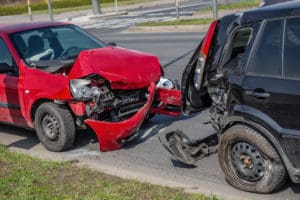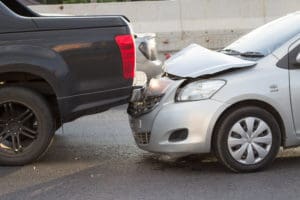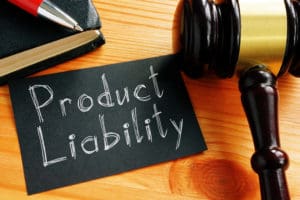Rear-End Collision After Suddenly Stopping, Whose At Fault?
If you’re injured in a rear-end collision, determining which motorist was responsible for the crash is central to the personal injury process, but proving which motorist was at-fault may not be easy.
In rear-end collisions, is the driver of the vehicle in the rear always at-fault? And if you’re hurt badly in a rear-end accident after someone hit you, who will be responsible for paying your medical expenses and reimbursing your lost wages?
Continue reading to find out what you can do after a rear-end collision accident.
How Is Liability Determined After a Rear-End Collision?
Rear end collisions account for a significant percent of the number of auto accidents that happen every year it is important to know what they are and how to prevent them. In a rear-end collision in Maryland, when a driver crashes or rolls into another vehicle that has stopped legally for a red light or stop sign, or into a vehicle that is parked legally, the driver in the moving vehicle is almost always considered liable.
Stopping safely is a standard driving skill needed to pass a driving test. That is because people need to be aware of when they need to stop. Drivers who cause collisions because they can’t stop safely are almost always considered negligent. However, in some cases, the motorist in the parked or stopped vehicle may also have a share of the responsibility.
When a vehicle stops in front of your own vehicle, there needs to be sufficient space for stopping safely. However, in fast-moving, heavy traffic, if the motorist in front unexpectedly brakes or stops, you may not be able to avoid an accident.
How and Why Do Rear-End Accidents Happen?
In a rear-end crash, the motorist in the front vehicle may have a share of the liability if his or her brake lights or taillights weren’t working, if he or she made a turn with no signal, or if that motorist failed to use his or her blinkers while stopping to check out a problem with the vehicle.
Nevertheless, no matter what side you are on, it may be difficult to demonstrate that the other driver had any responsibility. If you’re injured, let a Maryland car accident lawyer provide you with sound advice and the legal representation you will need.
What Can a Maryland Auto Accident Attorney Do for You?
A Maryland auto accident attorney will examine the details of your rear-end collision, including any photos of the scene and the damages, the written police report, medical records, and witness statements to discover what exactly happened and who was responsible.
If you were injured because the other driver was negligent, Maryland law entitles you to recover compensation for all of your medical costs, lost earnings, and other damages. Your lawyer will negotiate – or fight for you in the courtroom – for the compensation you are entitled to by law.
If you’re involved in a rear-end accident in a Maryland, Virginia, or the District of Columbia, don’t admit or confess any fault, don’t sign any auto insurance document, and don’t take an initial settlement offer until you have consulted an injury lawyer.
Get Treatment For Your Injuries After a Rear-End Collision
If you’re injured in a rear-end crash, obtaining medical treatment is the next step to take. You should submit to an immediate medical exam, within twenty-four hours if possible. After a rear-end collision, if you have sustained a latent or difficult-to-detect injury, and if you don’t have a medical examination at once, it may be difficult to link your injury directly to that accident, and that will hurt your personal injury case if you seek to recover compensation. Latent and hard-to-detect injuries can quickly (or sometimes slowly) become serious medical conditions, so an immediate exam protects you both legally and medically.
According to accident researchers, a headrest is the best way to guard against spinal cord, head, and neck injuries in a rear-end crash. Don’t set your headrest too low, or your neck may be hyperextended and strained as the result of a rear-end accident.
What Else Should You Know About Rear-End Collisions?
When a defective vehicle or part was the cause of a rear-end accident, and neither of the drivers were at fault, you may need to consider if this was a product liability issue. Did new brakes that were just installed stop working? Was my car not functioning properly? There are many factors to consider after a rear-end collision.
Is There a Deadline for Taking Legal Action?
The statute of limitations – the deadline – for bringing an injury claim after a rear-end collision in Maryland and Washington, D.C. is three years from the date of the accident (in Virginia, it’s two years). Needless to say, you can’t wait two or three years and then scramble to file an injury claim at the last minute.
Furthermore, your lawyer needs to see the evidence while it’s fresh and question the witnesses before their memories fade. Of course, you must take the first step yourself. If you’ve been injured in a rear-end collision, call a personal injury attorney as quickly as possible and seek treatment right away.
You Pay No Attorney’s Fee Until You Are Compensated
Most personal injury lawyers in Maryland, Virginia and Washington, D.C. work on a contingent fee basis. You pay no attorney’s fee until and unless you are compensated, and your first legal consultation is offered without cost or obligation if you’ve been injured in a rear-end collision.
If a negligent driver injures you, contact us today. We will make sure to get back the recovery you are entitled to.
To learn more, or to begin the personal injury process as quickly as possible, make the call now to a Maryland personal injury attorney.




